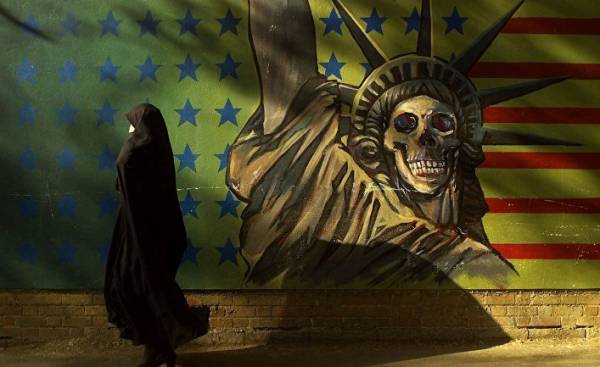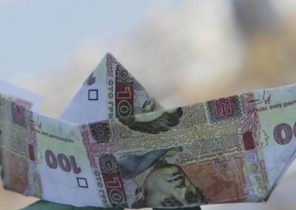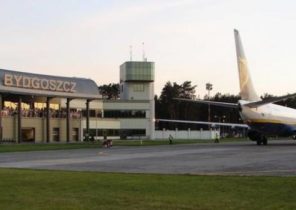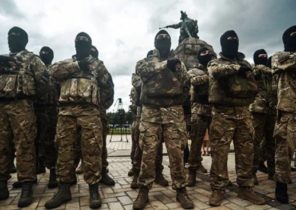
A noisy company of students speeding down the highway towards Berlin. “Bliss was to survive until dawn, But to meet him the young to true happiness,” wrote Wordsworth about the French revolution. In the yard in 1989, not 1789, but we are in the thrall of the same feelings that were experienced by the poet. Growing up among the nuclear ghosts of the cold war, we could not resist the temptation of at least one eye to see evidence of her physical death. Knowing that East Germany opened the checkpoint Charlie and was the unification of Berlin, we never hesitate to set off. 18 hours later, like thousands of other people, young and old, Germans and foreigners, we were digging the wall. Has made a contribution chisels and pickaxes. Two days later, back in England, drunken, amazed that we were not slapped with any fines for speeding, each with a small piece of the wall on memory.
We were sick of optimism. As a student of philosophy, politics and Economics at Oxford (Philosophy, Politics and Economics — PPE), I thought that is able to appreciate the significance of this event. Detractors called the school “a very bad education” (pretty poor education). Perhaps in some ways they were right. But at that moment the study of these Sciences seemed appropriate. We stood up for progress, or rather Progress, the belief that the modern West is akin to religion. In 1989, the split was overcome. When your experiencing the flourishing West wing teamed with faded post-Stalinist East, on the horizon of our generation no longer loomed a giant checkpoint. Now two nuclear camps will no longer oppose each other at the blood-soaked 20th century, the lands of Central Europe. Now this fragmented continent, of which Britain is not now to shun, will become one. In place of the Warsaw Pact regimes which, like dominoes, fell down the face of peaceful demonstrators, comes democracy. Ended up not only autocracy, nationalism die out. Opened borders. As wrote the historian Eric Hobsbawm, short and self-destructive 20th century that began in 1914 the First world war that was to come to an end with the collapse of the Soviet Union. Mankind has proven that they are capable of learning from their mistakes. Great time for those who was about to turn 21.
* * *
Almost three decades later, after the election victory of Donald trump in 2016, I was in Moscow. I was invited to participate in a conference on “polycentric world order” — Russian analogue of the “post-American world”. The conference organizer was the Institute named Primakov, named in honor of the man who in the 1990s held the position of Minister of foreign Affairs and the Prime Minister of Russia. In 1999, Yevgeny Primakov was dismissed as Prime Minister and he was replaced by Vladimir Putin. While my friends danced on the ruins of the Berlin wall, lost in thought Putin watched as his world collapsed about a hundred miles from the office of the KGB in Dresden, the city still belonged to East Germany. He later called the collapse of the Soviet Union “the greatest geopolitical tragedy of the 20th century.” That is, Primakov championed the notion of “multipolarity” in a vain attempt to weaken oceanic American triumphalism after the cold war. Putin picked up the concept and appropriated it for himself.
And there I was at the event in the same room with people like Alexander Bortnikov, head of FSB (successor to KGB), and with Putin himself. Even though Russian and not lavished smiles, now was their turn to celebrate. America just elected a President who prefers the wall and admires Putin. While Putin surveyed the wreck of his world, and we raced on the highway, trump in 1989 he released a Board game. It was called Trump: The Game. Your fake paper money and rules-based economic strategy, it strikingly resembled a “Monopoly” except that the number six at dice has been replaced by the letter “T”. We have no information about whether trump spoke about the fall of the Berlin wall. Anyway, all these things of bygone days.
Then followed the quick course on how to develop a different point of view on the world. Remaining student-historian, although I hope with more skeptical views, I was amazed at how often our organizers admiringly referred to the Congress of Vienna. We are talking about the conference 1814-1815 years, which marked the end of the Napoleonic wars and ushered in the era of stability that lasted nearly a century, until the outbreak of the first world war. The new world order was then guaranteed by the Quadruple Alliance of Britain, Austria, Prussia and Russia. Victory trump Russia has opened the prospect of a return to its historical role of great powers in a polycentric world — where everyone is under oath promises in no way to undermine the internal legitimacy of the other. Even a single word about the inevitability of democracy or world order with America at the head. This coveted Putin. Other, Beijing, Ankara, Cairo, Caracas, and even Budapest, the share of Russian hostility to Western notions of progress, like a growing number of apostates in the West. Can we say that they are wrong?
* * *
For a person whose life coincided with the flourishing of democracy, the spread of the market economy and the first signs that the world finally joined in the universal Declaration of human rights, painful, is the very formulation of this question. Unless these disputes are not resolved years ago? Unless the whole world does not seek to live according to the Western model? Confidence in this anymore. From our side it was a great presumption to believe that the rest of the world passively assimilate our proposed model. We need a skeptical look at what he learned never to question.
At stake is a quasi-religious reading of Western history, rooted in the Magna Carta, which the eight-hundredth anniversary in 2015, was celebrated in Runnymede. Limiting the power of the king, the Magna Carta set a precedent for what would later become known by the slogan, “no taxation without representation.” This small volume of medieval document for several centuries dwelt in obscurity — not even Shakespeare mentioned it in his chronicle “King John.” However, since the 17th century, when the Charter wiped away a century of dust, the opponents of the tyranny of the Stuarts in England, the Magna Carta and then got to the 13 colonies in America, and it became a kind of myth about the origin of Western liberalism. As the historian of the Magna Carta by Dan Jones (Dan Jones), in the year 1215, is now perceived as a “starting point” of liberal democracy. When after the Second world war was the universal Declaration of human rights, Eleanor Roosevelt said she “may well become the international Magna Carta for people all over the world.”
For many centuries Westerners have kept the faith in linear movement of time which invariably leads us to a more happy future. The Greeks called it teleology. For Christians it was the second coming of Christ. For the Marxist dictatorship of the proletariat. For nationalists gaining control over the destinies of the people. For Georgian and Victorian liberals on both sides of the Atlantic and their current heirs throughout the Western world it was the progress of human rights towards individual freedom. In 1989, most people believed in the latest version. The other options are either died off or retreated into the background. Now inactive except Marxism. The belief in authoritarian national way through its triumphant return. More importantly, non-Western conceptions of history, which has long cast its shadow of colonialism, once again beginning to qualify for significance. Each in its own way, China and India has traditionally seen history as a cyclical movement. And keep that vision to this day. Material conditions can improve. However, the moral state of mankind does not change. There is no ultimate political goal, which leads to our story. For the rest of the world, which accounts for almost nine-tenths of mankind and which in the majority are only now finally starting to catch up with the West in terms of wealth, the moral progress of humanity is considered to be an insoluble problem. The story does not end. It is an endless repetition of errors and attempts to fix them.
Those who doubt this recurrence, we should look into the history of the United States. In 1789 the life expectancy in the newly independent American colonies was not more than 40 years. To make the journey from his home in Virginia to Philadelphia in a carriage and ship, Thomas Jefferson was required 12 days. Today, the average life expectancy of Americans is almost two times higher, and the ride along the route Jefferson takes five hours. Now try to approach American history with other criteria. First US President George Washington was a historical figure of global scale, he secured the democratic nature of America, her refusal to wear to the inaugural General form. Despite all the calls he after two terms, left his post. Feared that the third would create a wrong precedent. Can we say that the moral progress of America corresponds to the material? In a sense, absolutely Yes. The United States was born in the era of slavery, and women at that time were denied the right to vote. However, after the election of the President of trump is quite difficult to maintain faith in the movement towards “a more perfect Union”. Washington decided to be humble statesman, when he was met by a Laurel wreath. While trump is a consummate master of self-promotion.
Of course, trump and his colleagues in Europe provoked a crisis of democratic liberalism. They are symptoms of this phenomenon. It can be very difficult to accept. A reassure ourselves that victory trump was an accident, the last breath of a dying white majority of America — and the provocation of Putin. After a short break, the story will resume its normal course. They are too optimistic. Almost a quarter of the white working class of America, who in 2008 voted for Barack Obama in 2016 sided with trump. So suddenly they are on the unfortunate expression, Hillary Clinton, were “pathetic”? Or were they driven by a desire to expose the system, which is constantly blamed for their plight? The same question can be asked in relation to the employees of Nissan in Sunderland voted for Pexit against their own economic interests. Can be called poetic coincidence that David Cameron and Clinton both stumbled on the same campaign slogan: “Together stronger.” No wonder the cynicism shown by so many voters on both sides of the Atlantic. Since bill Clinton left office, the Clintons have earned on their performances 235 million dollars — most of this money has provided those banks with wall street that refused to a large number of representatives of the middle class in right to buy homes. A few weeks after leaving office Obama has attended 400-thousand fee for the performance in front of a Wall Street firm — which is equivalent to the presidential salary. In the era of trump the need for thinking Obama is likely to increase. But his fees are too well known to us the monetization of public service. The average income of Americans has reached its pre-crisis level only by the end of Obama’s term in 2015. It is still below the rate of turn of the century. Meanwhile, nearly half of Americans now consider themselves “lower class” — for comparison: in 2000 there were one third.
The discontent of the Western middle class, which was the main loser in the global economy, striving for convergence, which will take several decades, has been brewing for many years. In the UK we call them “left behind”. In France they — “the formation of average power”. In America — the “squeezed middle”. The most appropriate term — “precariate” — those whose lives are defined by economic instability. According to the consulting firm on management McKinsey, more than 160 million people in the West today work in the economy, earnings that are significantly higher than five years ago. Of these, about one third do it of necessity. Their number is projected to rise sharply. Their share in the wealth of the United States continues to decline. Low-income half of Americans currently owns only one percent of the country’s wealth.
In 1966, American sociologist Barrington Moore (Barrington Moore) wrote, “No bourgeoisie, no democracy”. In the coming years we will see, will confirm this thesis. Since the beginning of the new Millennium, and especially over the last decade, the inconsistency demonstrated at least 25 democracies around the world, three of them in Europe (Russia, Turkey and Hungary). It is possible that this list will soon be Poland. In all countries, except for Tunisia, the Arab spring has been absorbed by the summer heat. “It is not clear what it is: a market correction in a democracy, or a global depression,” says Francis Fukuyama, a scientist who in 1989 raised the question of a possible end of history. The answer is found in the United States and other Western democracies.
Journalists, as a rule, tend to give too much importance to recent events. We also love hindsight calmly to interpret as inevitable something that was not foreseen previously. Don’t forget that Pexit was not supposed to happen. The referendum was a reckless throw of the dice useless Prime Minister. And victory trump could have been avoided. If some 77 thousand votes in the Midwest have gone the other way, Hillary Clinton would be President today. But there are some pros and cons.
Even if marine Le Pen will lose the election in France, and Angela Merkel will retain power in Germany, the crisis of Western liberalism will not end overnight, though I suspect that’s the way it would be everywhere talking. If anything, Clinton in the White house also would not guarantee America safer. The arrogance of Western elites undermines their ability to comprehend the true magnitude of the threat.
In December last year Norbert Hofer, harsh nationalist right, was one step away from winning the presidential election in Austria. Nevertheless, we celebrated his defeat as a failure of the populist wave. We most likely will do the same, if on Sunday the French neo-fascists lose, gaining about 40 percent of the vote. The national front, Le Pen remains the largest party in France in two very important areas: in the industrial North, and in Provence. As in the years to come millions of new French, the British, Americans and other Westerners will move from secure jobs with pensions to contractual status without benefits, their sense of insecurity will increase. The slogan “take Back control” may not mean anything in a world of interdependent sovereignty. But for those who have lost what was once considered their economic security, it is quite real. Western tradition the state to insure individuals against the vagaries of the market. Today it is each time more leaves this role. If Emmanuel macron will win the French elections, the supporters of liberal democracy, including myself, must pray for him and others like him the leaders — were successful. However, to win he’ll come through too generalized and vague promises, without a party majority that would support his initiatives. Obama has brought a similar hope in 2008, when his party was in control of the situation. Eight years later, America chose a trump.
The crisis of the West was invented not in 2016. And will not disappear in 2017. It is structural, and is highly sustainable. Those who is silent about it, have a liberal democracy a disservice.
Edward Luce, chief columnist and commentator the Financial Times. His book The Retreat of Western Liberalism at the moment comes out in the UK (Little, Brown), and June 12 in the USA (Grove Atlantic).







